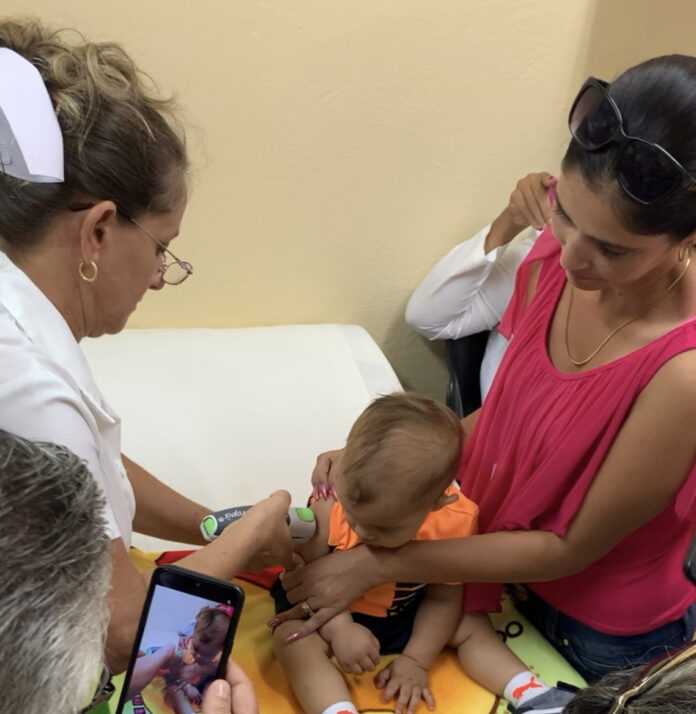Golden, Colo.– A new study published in the journal Vaccine has found that PharmaJet’s Tropis® needle-free intradermal injection system significantly reduces adverse events compared to traditional needle and syringe (N/S) methods when administering fractional-dose inactivated poliovirus vaccine (fIPV). The research, conducted in collaboration with the World Health Organization (WHO) and Cuba’s Instituto Pedro Kourí (IPK), also showed overwhelming preference for the Tropis device among both parents and healthcare workers.
Involving over 6,700 children, the study evaluated safety, user preference, and immune response in Cuba’s routine immunization program. The results demonstrated that only 6% of children experienced adverse events with Tropis, compared to 13% with N/S, a statistically significant reduction (p=0.028). Surveys revealed that 98% of parents and 98.5% of nurses preferred Tropis over traditional injection methods, citing improved comfort, less crying, and ease of administration.
Despite the differences in delivery method, the two groups showed comparable levels of seroprevalence, confirming that the needle-free approach did not compromise the vaccine’s immunogenicity.
“These results highlight that Tropis results in fewer adverse events than the traditional Mantoux technique and is far more acceptable to patients and healthcare providers,” said Paul LaBarre, Vice President of Global Business Development at PharmaJet. “This should be very encouraging to immunization programs seeking to harness the advantages of intradermal delivery.”
The study adds to a growing body of evidence supporting the use of Tropis for fIPV, particularly in global polio campaigns. The device has already been deployed in mass vaccination efforts in countries like Pakistan, Nigeria, and Somalia, where nearly 12 million children have received polio vaccines using the needle-free system.
PharmaJet’s Tropis is the first and only needle-free intradermal delivery system to earn prequalification from the World Health Organization, marking it as a trusted tool for improving vaccine delivery, especially in resource-limited settings. The WHO–Cuba collaboration, spanning more than two decades, continues to play a pivotal role in shaping strategies for the final phase of global polio eradication.


